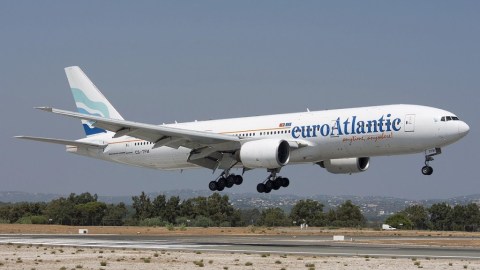What are the best reasons to be an airplane pilot? Being a pilot means constantly learning. While it’s important to know the specifics and regulations, learning goes beyond the books in this job. Real-time learning happens behind the controls of a plane, but luckily pilots can learn from everyone around them. Anything can happen once the plane leaves the ground, and pilots challenge themselves by going into a workday and not knowing exactly how it will go, but making it work anyway. As a pilot, you will constantly have the opportunity to meet new people. From your flight crew to passengers, to residents of the cities you visit, you’ll be introduced to people and cultures you may not have otherwise had the opportunity to become acquainted with.
Best methods to receive a commercial pilot license by thePilot.in professional advice? We need to be 100% sure that you are medically fit to fly before you invest your money in a pilot course as it’s a mandatory requirement. The medicals are a 2 step process. Class 2 medicals : It can be carried out throughout India with doctors appointed by DGCA. Post completion you will be handed a CA – 35 assessment form as fitness certification and your reports will be sent to the office of DGCA for the issue of medical assessment later on you receive a final medical assessment from DGCA. Class 1 medicals : Class 1 initial medical assessment can be carried out in only 5 cities (Mumbai, Banglore, Delhi, Chennai and Johrat) . Class 1 medical assessment date can only be requested post receiving class 2 assessment from DGCA.
”But I can’t say it never happens,” says Tim, a pilot at a major airline. “At present, the regulations do not officially allow it, but sleep studies have proven that short catnaps, especially when flying in the wee hours, are actually beneficial to wakefulness. Unfortunately, the FAA hasn’t put anything in writing that allows this.” To avoid exhausted pilots, the FAA has instead issued a guide, FAR-117, that mandates minimum rest periods (like a full eight hours of sleep) and maximum working times for pilots—usually no more than 30 hours per week, according to Auxier. Before the plane doors are shut, Smith says many pilots are happy to offer nervous fliers and kids a peek inside the cockpit. “People are more than welcome to come up and say hello before pushing off,” he says. “90 percent of pilots love it when people do that.”
Be prepared to struggle. Flight school is hard. There is a lot to know and remember for your ground labs, flight labs, and exams. As a student, you’ll be studying a lot and may have little free time. If you know this before going into flight school, it will come as no surprise and you’ll be able to more easily handle the workload. Not everyone is a natural pilot. Some students you’ll be training with may seem to be natural pilots. This can be frustrating if you’re struggling even to learn simple maneuvers. It’s completely fine to struggle with flying for the first little while. As long as you push through your frustration and don’t let the setbacks worry you, you’ll get the hang of things. Soon, you’ll master all the maneuvers and will look back and laugh at your previous struggles. Budget carefully and make sure you get the most for your money. Let’s face it, flight school is expensive. If you aren’t able to use VA Benefits to pay for school, then it will fall on you to seek federal financial aid, student loans, and scholarships. No matter what your financial situation, you’ll need to be careful about the way you spend your money and about what flight school you’re paying to teach you to fly. Do your research before committing to a flight school and make sure that whatever school you choose will help you succeed as a pilot and will take your education seriously. To learn more about how to pay for flight school, read this article.
What’s A Commercial Pilot? A commercial pilot is a pilot with commercial pilot license (CPL) and commercial pilot training that is paid to transport people and cargo from various local and international locations around the world, unscheduled. They are also paid to carry out other operations such as search and rescue in emergencies and aerial surveying. Airline pilots differ from commercial pilots because they fly for airlines on a fixed schedule unlike commercial pilots. Discover even more information on thepilot.in.
